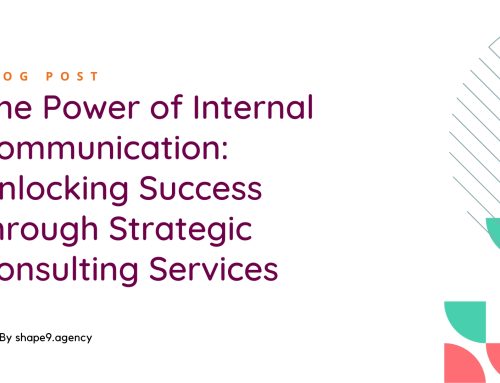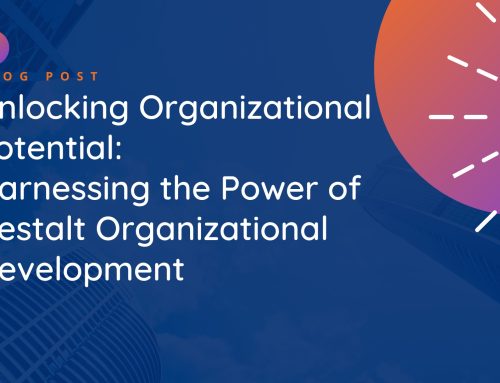Welcome to our blog, where we explore the vital role of communication in today’s fast-paced business environment. In this article, we dive into the challenges that companies face when dealing with external and internal communications on the operational level without having solid communication strategies. We shed light on the problematic nature of this approach and highlight the importance of implementing effective communication strategies. At our strategic consulting agency, we are committed to helping businesses overcome these challenges and unlock the power of strategic communication.
The Pitfalls of Ad Hoc Communication:
Inconsistent Brand Messaging: When communication is ad hoc and lacks a clear strategy, consistency in brand messaging becomes a major challenge. Inconsistent messaging confuses customers, dilutes your brand identity, and weakens your market position. A solid communication strategy ensures that your brand messaging is consistent across all channels, conveying a unified and compelling story that resonates with your target audience.
Missed Opportunities: Without a well-defined communication strategy, companies risk missing out on valuable opportunities. From media coverage to potential partnerships, effective communication plays a vital role in attracting new customers, investors, and talent. A comprehensive strategy ensures that you seize these opportunities, enhancing your visibility, reputation, and growth potential.
Internal Fragmentation: Internal communication is just as critical as external communication. Without a solid strategy, companies often experience internal fragmentation, resulting in silos, misalignment, and decreased productivity. Effective internal communication fosters collaboration, boosts employee engagement, and strengthens the overall organizational culture.
Crisis Mismanagement: In times of crisis, a lack of communication strategy can lead to disastrous consequences. The absence of clear protocols, messaging guidelines, and designated spokespersons can result in confusion, misinformation, and reputational damage. A well-crafted crisis communication strategy equips you with the tools and processes to manage crises effectively, ensuring transparency, trust, and swift resolution.
The Path to Effective Communication:
Define Clear Objectives: Start by setting clear communication objectives aligned with your overall business goals. Identify key stakeholders, both internal and external, and determine what you aim to achieve through communication. Clear objectives provide a foundation for strategic decision-making and guide your communication efforts.
Know Your Audience: Understanding your target audience is crucial. Conduct research, gather insights, and develop buyer personas to ensure that your messages resonate with your audience’s needs, preferences, and pain points. Tailor your communication approach to different segments of your audience, crafting messages that connect and engage.
Craft a Compelling Narrative: A compelling narrative forms the backbone of your communication strategy. Develop a consistent brand story that reflects your mission, values, and unique selling propositions. This narrative should guide all communication efforts, weaving a consistent and captivating tale that differentiates you from competitors.
Select Appropriate Channels: Identify the most effective communication channels to reach your target audience. From traditional media to digital platforms, choose the channels that align with your audience’s preferences and behavior. Integrate different channels to create a seamless and cohesive communication experience.
Monitor, Evaluate, and Adapt: Regularly monitor and evaluate the effectiveness of your communication efforts. Use key performance indicators (KPIs) to measure success and gather feedback from stakeholders. Analyze the results and adapt your communication strategy accordingly, ensuring continuous improvement and relevance.
Understanding the Reasons Behind Choosing to Work Without Communication Strategies:
While implementing a solid communication strategy is crucial for business success, some companies choose to operate without one. Let’s explore some common reasons behind this decision:
Lack of Awareness: Many organizations underestimate the impact of effective communication strategies. They may not fully comprehend the benefits and competitive advantages that come with a well-planned and executed communication approach. Without a clear understanding of the value it brings, companies may overlook the importance of investing time and resources into developing a comprehensive strategy.
Short-Term Focus: Some businesses prioritize short-term goals over long-term strategy. They may believe that communication strategies are time-consuming and divert attention away from immediate operational needs. However, this shortsighted approach can hinder growth and limit the ability to build a strong brand reputation and lasting relationships with stakeholders.
Resource Constraints: In resource-constrained environments, companies might be tempted to cut corners or prioritize other aspects of the business over communication strategy. They may believe that their limited resources are better spent on product development, sales, or operational efficiencies. However, neglecting communication can result in missed opportunities, poor brand perception, and difficulties in attracting customers, investors, and top talent.
Reactive Approach: Some organizations only address communication needs on a case-by-case basis, reacting to specific events or situations as they arise. While this may suffice in the short term, it often leads to inconsistent messaging, confusion, and missed opportunities to proactively shape the narrative. Without a proactive communication strategy, companies risk being caught off guard by crises or failing to leverage positive developments effectively.
Overconfidence or Complacency: Companies that have experienced success or have a strong market position may become complacent about their communication efforts. They may believe that their brand speaks for itself and that a formal communication strategy is unnecessary. However, even established companies need to adapt and evolve their communication approach to maintain relevance, engage stakeholders, and remain competitive.
The Importance of Embracing Effective Communication Strategies:
While these reasons may initially seem valid, it’s essential to recognize the potential consequences of working without solid communication strategies. The benefits of embracing strategic communication far outweigh the temporary comfort of avoiding it:
Enhanced Reputation: A well-crafted communication strategy builds a positive brand reputation, fostering trust, credibility, and goodwill among stakeholders. It allows you to proactively manage your brand narrative, respond to challenges effectively, and maintain consistent messaging that aligns with your core values.
Improved Stakeholder Relationships: By investing in communication strategies, you can cultivate stronger relationships with customers, employees, investors, and other stakeholders. Clear and transparent communication instills confidence, fosters loyalty, and creates a sense of belonging within your organization, leading to long-term partnerships and advocacy.
Increased Business Opportunities: An effective communication strategy opens doors to new business opportunities. It helps attract potential customers, forge partnerships, secure media coverage, and position your company as an industry leader. Opportunities that may have gone unnoticed or unexplored before can now be embraced, propelling your business to new heights.
Crisis Preparedness: No company is immune to crises or unexpected challenges. A communication strategy equips you with the tools and protocols necessary to handle crises effectively. It enables you to address issues promptly, mitigate damage, and maintain stakeholders’ trust, preserving your brand’s integrity even in the face of adversity.
Long-Term Sustainability: A well-executed communication strategy contributes to the long-term sustainability of your business. By consistently engaging with your audience, delivering clear and compelling messages, and adapting to evolving market dynamics, you establish a solid foundation for continued growth, resilience, and success.
At Shape9, we understand the critical role of effective communication in driving business success. Our strategic consulting agency, specializing in communications and organizational psychology, is dedicated to helping companies overcome communication challenges and build robust communication strategies.





